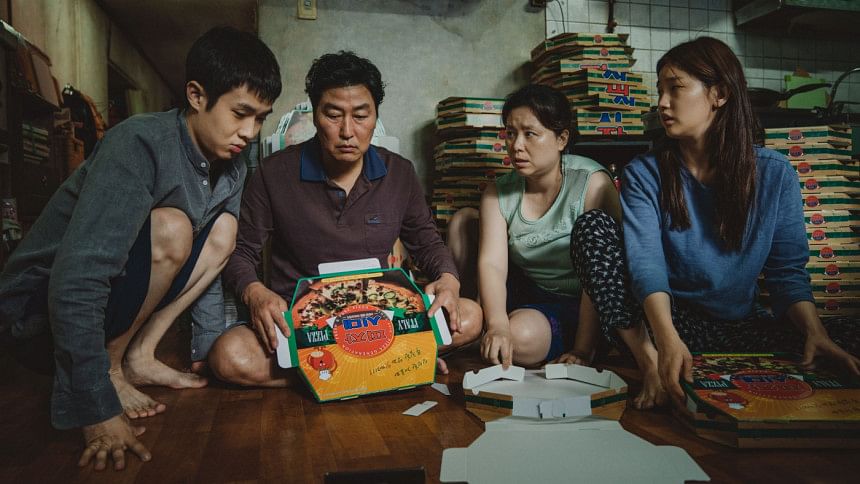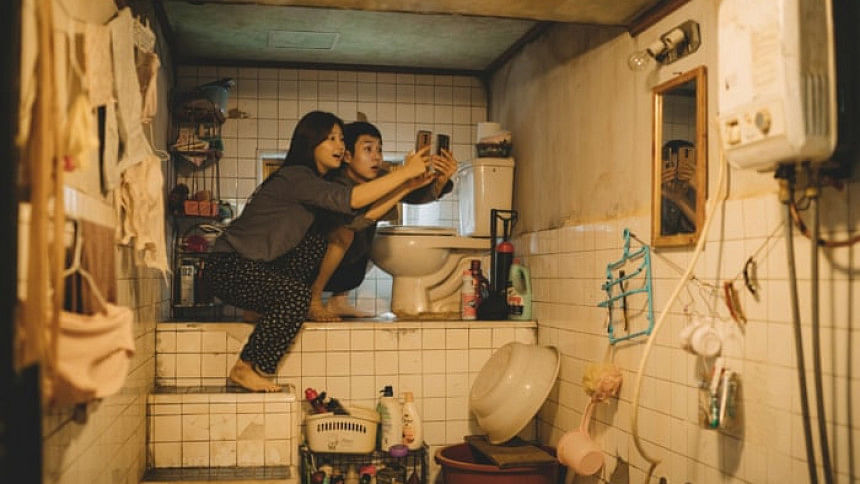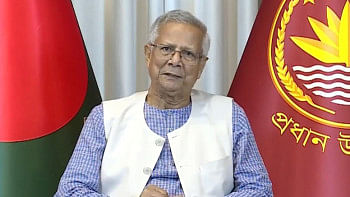Revisiting ‘Parasite’, a powerfully revealing social satire

"They are rich, but still nice; they are nice because they are rich" — these lines from Parasite, the first non-English language film to win four Oscars, connect class, morality, and capitalism. The South Korean film was screened at the 2021 Korean Film and Tourism Festival in Dhaka, earlier this week.
The tale of two families shown by well-crafted characters draws the levels of a house – the upstairs and the downstairs, the class system, and the fixity of the deprived, by the hands of the director Bong Joon-Ho and co-writer Han Jin-won.

Parasite is a movie that will pull you into the reality of class differences, in both artistic and moral ways.
Bong Joon-Ho has said that Parasite is "a comedy without clowns, a tragedy without villains." The film tells the story of two opposite families: the less fortunate Kims and the wealthy Parks. It shows you the extreme reality of the affairs of class warfare in society.

You can choose to view the ending in a positive or grim way. Bong Joon-Ho has said that he really wanted to be honest and didn't want to spread random hope among the audience.
It is remarkable that the director of Parasite made a movie called The Host in 2006. In numerous ways, The Host represents the same qualities as Parasite, as it falls under the cunningly comical genre. The film has a curving plot that bounces from comedy to horror to tragedy to drama and back again with a never excessively clear societal criticism.

In Parasite, the characters are imprisoned in such a socioeconomic system that they move across life by hungering on one another's efforts and resources.
Naturally, every parasite needs a host organism to keep itself alive. In the film, Parasite, the host is the system — the poor need the rich to stay afloat.

Like Parasite, The Host is also a story about a family, mainly a group of poor people trying to live their lives by selling cheap food. In Parasite, the Kim family lives in a half-basement apartment, folding pizza boxes. But the two films emerge with very different storylines. While The Host is about a muted creature, Parasite sheds light on inequality, supported by a marvelous cast.
Bong Joon-ho already has an impeccable track record, but he stepped up his game with Parasite, a brilliant, powerfully revealing social satire.
The author is a freelance journalist.

 For all latest news, follow The Daily Star's Google News channel.
For all latest news, follow The Daily Star's Google News channel. 



Comments